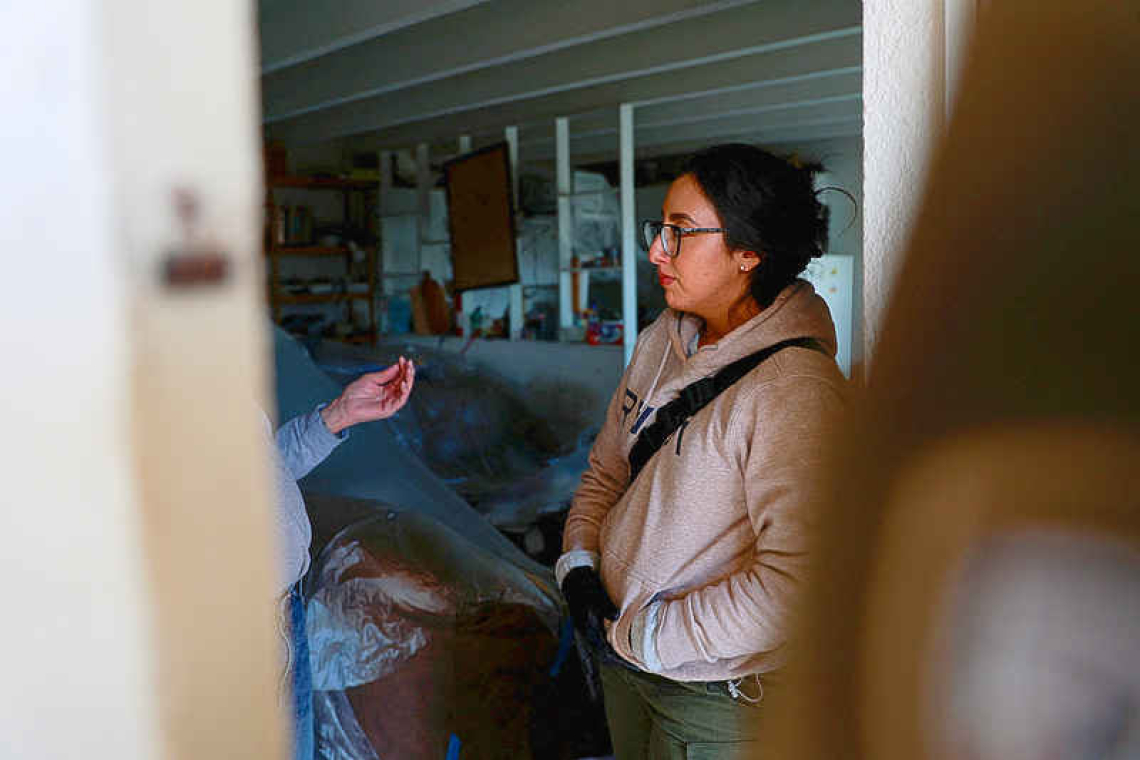ALBUQUERQUE--Unarmed emergency responders Nevada Sanchez and Sean Martin take a police dispatch call in southeast Albuquerque, New Mexico, a city with high rates of violent crime and police shootings. They have no enforcement powers or protective equipment and say they use their voices and brains to deescalate encounters with people in mental health and substance abuse crises. On some occasions they may have saved lives. As they drive through a sprawl of squat beige buildings and strip malls, Martin and Sanchez recall occasional times they talked down people holding a weapon. Martin says he persuaded one man to throw a knife into a neighbour's yard, telling him officers were on their way. When they arrived, Martin told them the man was no longer armed and things ended peacefully. "On that day I can't help but think we prevented him from being harmed," said Martin, 53, who with his ponytail, hoop earrings, hooded jacket and blue jeans looks more like a tech worker than a first responder. Albuquerque, with the second highest rate of police killings among U.S. cities over 250,000 people, according to Mapping Police Violence, has set up one of the country's most ambitious civilian responder programmes to offer help rather than law enforcement to people in crisis. Such initiatives have spread like "wildfire" across the United States since the 2020 murder of George Floyd highlighted police killings of people of colour and those suffering from mental illness or substance abuse, said Alex Vitale, professor of sociology at Brooklyn College. The two-and-a-half year old Albuquerque Community Safety (ACS) department now takes the majority of mental and behavioral health calls when there is not a weapon or danger to responders. Police or an ACS "mobile crisis team" of a mental health professional and officer take the rest. ACS measures success on metrics such as how many people it transports for mental health services and lowering police shootings, director Maria Ruiz-Angel said. Albuquerque's officer involved shootings hit a record in 2022, with 11 people killed - nearly as many as the 13 in New York City with about 15 times the population. Fatal police shootings eased to seven in 2023, still high. Around a third of incidents involved someone in mental health crisis. No ACS mobile crisis team was involved in a police shooting. In the same period, the number of people ACS offered housing more than doubled to 1,454 while provision of mental or behavioral health services nearly tripled to 904, city data shows. "Albuquerque is a really good example of what it looks like to go beyond implementing a programme to building out an institution and an infrastructure that can anchor changing our public safety and emergency response systems," said Daniela Gilbert, a director at the Vera Institute which researches criminal justice. ACS, a city department independent of police and fire, offers services ranging from school violence intervention programmes to outreach for unsheltered people. Many police departments support civilians taking on non-criminal emergency calls so officers can respond to felonies faster. Albuquerque police Commander Jeff Barnard would like to see ACS "get additional funding and resources to continue to work on the things they're working on." The Department of Justice has monitored Albuquerque police since 2014 after it found a pattern of excessive use of force. It recommends ACS take on more 911 calls. Shaun Willoughby, head of the APD officers' union, said ACS was an attribute but it was "fantasy" to think responders could replace officers due to limits on the types of calls they can take without police support. "The real problem that faces Albuquerque is that we don't have enough police officers and crime is out of control," he said, citing an "exploding fentanyl problem." Unlike programmes in New York, Chicago and Houston, ACS behavioral health teams are dispatched without paramedics or police who can trigger people suffering a psychotic break. "It is absolutely our preference that whenever possible these civilian responders are responding without police," said Daniel Williams of the American Civil Liberties Union of New Mexico, citing the safety of people in crisis. ACS responders are trained to retreat if threatened. Their most serious injury to date is a responder shot at random by a child with an air gun. When an unsheltered woman charged Sanchez with a shovel she said she ran. "If someone tells us to 'Go away' we go away," said the 28-year-old who has a master's degree in forensic psychology and uses breathing exercises to calm people in distress.







